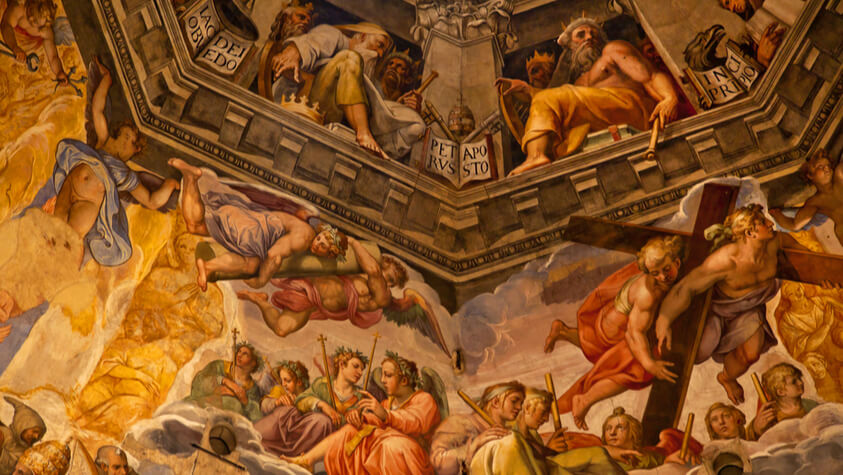By TACP Staff on July 05, 2021

Knowledge in the field of art history can be applied to a vast number of industries. Furniture design, teaching, museum work, government employment, clothing and costume design, private and public research projects, architectural consultation, interior design advising, entertainment set direction: these are just some of the areas which need perceptive, talented art historians. This field takes history and from it, creates the future.
The concept of art is often considered to be one of the earliest forms of self-expression, creativity, and communication. The earliest cave paintings are one of the most popular examples of the earliest forms of art. Throughout the years, however, art and art techniques have grown and evolved with humankind. The age of a particular piece of art, for instance, can often be closely determined by the style of the piece, as well as the materials used to create it.
Art history, as its name suggests, is the study of art throughout the ages. The purpose of this type of history is to not only understand and appreciate certain pieces of art, but also the artists that created them.
An art historian studies the different types and styles of art and artists throughout history. Many art historians will often try to look at a piece of art from the perspective of the artist. This enables them to understand and appreciate the piece a little better. For instance, the message and motivation of an artist in the 13th century will have most likely been very different from that of an artist in the 19th century.
By studying these artists and their art, art historians are able to see the changes and progression of art throughout history. An art historian is often in a position to help others understand art better as well. Studying art has also helped historians better understand how people in ancient cultures lived.
Unlike some other art careers, starting a career as an art historian often requires several years of post-secondary schooling. At the very least, an individual usually needs to have a Bachelor’s degree in art history before he can call himself an art historian. Generally, however, most art historians will often go on to earn their Master’s or Doctorate degrees in art history.
Art historians who are interested in teaching might also want to earn their teaching degrees as well. Preserving and restoring art may also require a degree in fine arts as well.
Learn More: Fine Arts Schools
An art historian’s degree and area of expertise will often help determine his salary. For instance, an art historian with an advanced degree will often be able to command a higher salary. In 2017, according to the Bureau of Labor Statistics, museum curators and archivists made $53,700 and $51,760 respectively. University professors, on the other hand, made an average of $78,720 in the same year.
Generally, a degree in art history will often help you secure employment in museums or art galleries. These types of organizations will often hire art history majors to obtain pieces of art and arrange exhibits. Individuals with advanced art history degrees may also be qualified to work as curators. These museum officials are often in charge of overseeing certain sections of a museum or an entire museum. Some other possible careers for art history majors include university professors, archivists, museum registrars, museum technicians, preservationists, and art restorers.
Consider these related careers in Art and Art Studies.

The Art Career Project is a trusted resource for emerging and professional artists.